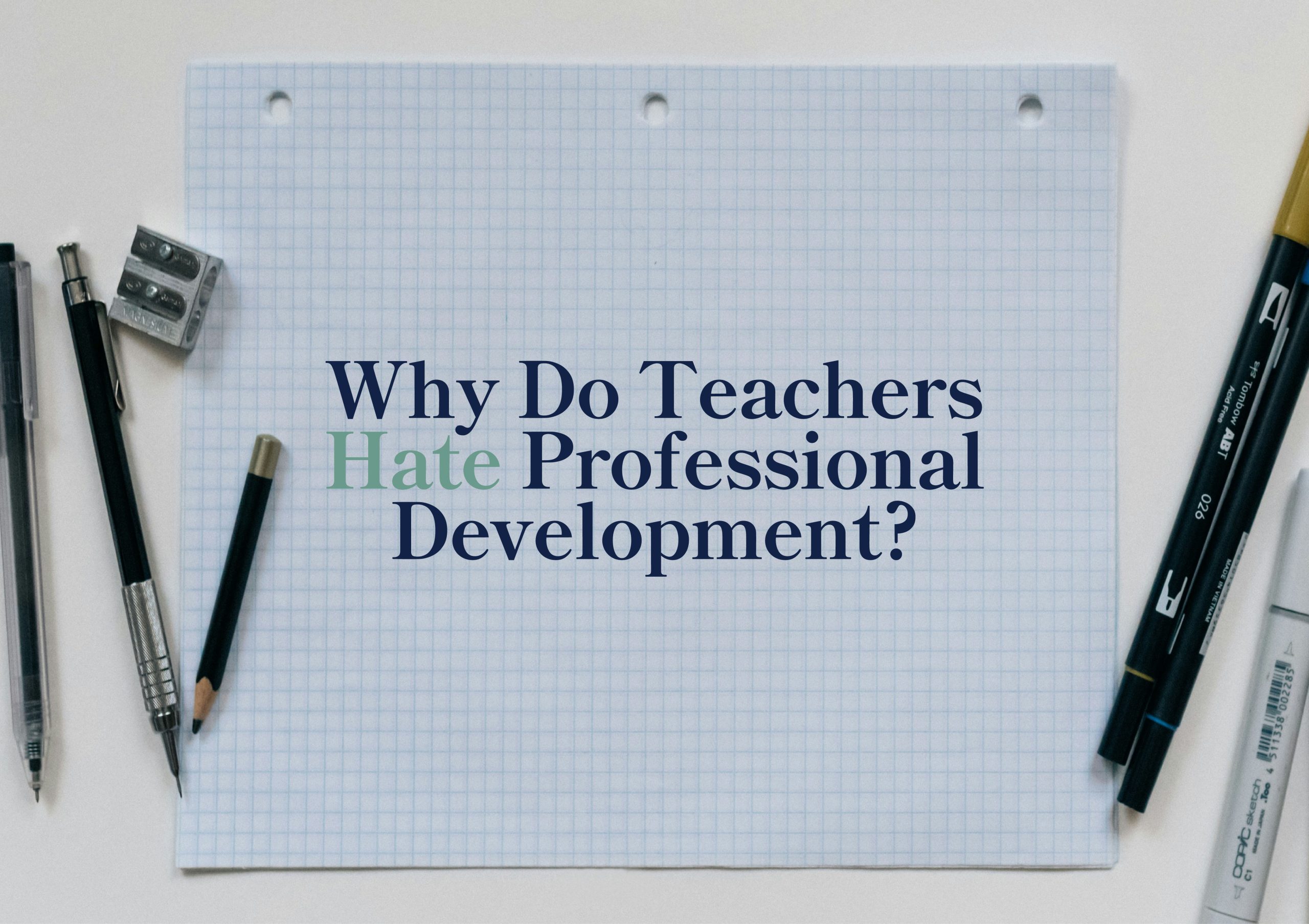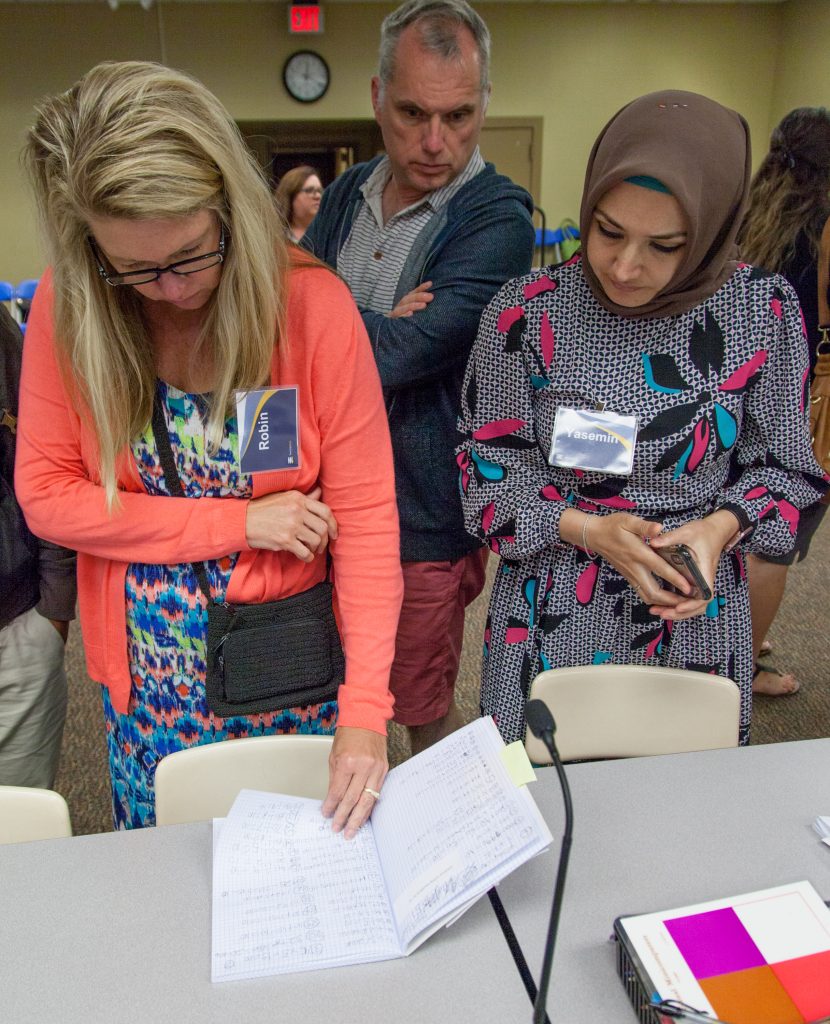Why Do Teachers Hate Professional Development?

It’s that time of the year. Schools around the country are launching a new year—and with a new school year comes beginning-of-the-year professional development. I, like you, am friends with a huge number of teachers, so this is the time of year when my social media feed is overloaded with what one might call “PD Hate” memes and videos. While it might feel, especially to education outsiders or people who are no longer in the classroom, like teachers hate professional learning and it’s a waste of time and money, if we listen closely and bring nuance to our listening and conclusions, there is a lot we can learn about designing worthwhile learning opportunities for teachers. I would argue that these social media feeds show us that teachers don’t hate real, quality professional learning; they hate what they are given in place of that. Below, I lay out some of the biggest “PD offenders” I’ve seen, why they are a problem for teachers, and what we can do instead. Be sure to stick around until the end to see how we at TeachingWorks approach PD.
“Not right now!”: The issue of timing
Imagine that you are coming back to teach after summer break. You just finished your summer job and it’s the first day you’ve been allowed in the building. At the end of last school year, you packed up your classroom, ready to change rooms or be reassigned. You’re worried about getting your room set up in a way that is inviting and productive for you and your students. You need to unpack, set up your furniture, get your materials gathered, and prep for the first day. But your day has already been scheduled for you: a staff meeting, followed by a curriculum orientation, lunch, and an afternoon PD focused on a topic that teachers identified. You’re excited about the topic, but it feels like now isn’t the time to worry about this. While this isn’t every teacher’s situation, this is how many start the year. They may feel frustrated with PD, complain that the whole first day was a waste of their time, and sit in the back of the room all day doing other work and not engaging. The conclusion: Teachers hate PD.
However, it is likely that the timing is what teachers actually hated. Everyone is so focused on setting their classroom up for success and getting the school year off to a good start that they aren’t ready for professional learning. So, what can we do?
Start the school year with a staff meeting that raises only key issues that teachers need covered to prepare for the year—new policies and systems, meeting new staff, etc. Then Let. Them. Go. Give teachers time to get set up for the year. Once they are settled, provide professional learning that is directly connected to starting their school year off right. We know that the relevance of professional development matters for teacher learning and uptake. As often as we can, we need to make sure that PD is timed to teacher needs and the demands of the school year, increasing the likelihood that teachers see the relevance.
“Ugh, I don’t have time for this”: Icebreakers and games
We know, of course, that building relationships with colleagues matters for teachers, as does creating a comfortable space where teachers can share their ideas, questions, and concerns. Well-meaning leaders often see icebreakers and games focused on “outside of school” sharing as a fun way to meet these needs. However, one of the biggest complaints we hear from teachers is related to icebreakers and games at PD sessions being awkward, stressful, or a waste of time. In fact, EdWeek devoted an entire article to the subject. So, what’s the issue? Keeping the “professional” in professional development matters to teachers. Their jobs are demanding, and many don’t feel that using their work time for unrelated activities or “forced fun” treats them with respect.
So, what are we to do? Can we never have fun together? The goals are to build relationships and create a comfortable space. When we structure and facilitate activities well, we can accomplish these goals simultaneously while doing work together. For example, in one of our PD projects, we planned to have teachers working together by sharing artifacts of teaching. This required a trusting environment. We wanted to ensure that the group understood what might be more and less challenging for others in sharing their work publicly, but we didn’t want to put people on the spot or make them feel defensive. Instead of engaging in a “trust-building exercise,” we used a Zones of Comfort activity with the group. Teachers moved around the room to represent their level of comfort with a set of prompts related to the work that we would be doing together, pausing after each round to notice where the group was in their comfort with the work, but never being forced to voice their discomfort. The task is serious, supportive, professional, and focused on the work. Teachers are learning about one another in relation to the work they will be doing together and considering how others’ responses will impact their own engagement with the work.
“How is this helping me to be a better teacher?”: Mislabeled professional development
Everyone has had a professional experience that isn’t “as advertised.” Maybe it’s an extremely long meeting disguised as a “retreat” or a staff meeting that could have been an email. For teachers, many things are labeled as professional development that one could argue are neither treating them as professionals nor serving as a source for developing their skills and knowledge as teachers. Take, for example, the mandatory modules that states often require teachers to complete at the beginning of the year. At the same time, many of these things are necessary. There should be a meeting at the start of the school year (and other times across the year) to introduce new staff, new procedures, and new tools, and there should be opportunities to update or refresh teachers on laws and requirements. So, what can we do?
First, we can label these other opportunities in ways that are honest. Words matter for both what teachers expect from non-instructional time together and for how they will approach that time. “All staff updates” might set a teacher up to be introduced to new information that everyone needs to know without the expectation that they will be asked to contribute. “Required certification” has a different connotation (think blood borne pathogens) and might set a teacher up to approach the task as necessary, even if not directly focused on daily work. Reserve the label of professional development for true learning opportunities that treat teachers as professionals and focus on making the work they do with students each day even better.
“Ah, that’s more like it”: Professional development that works
So, what does professional development that impacts teaching and that teachers love actually look like? Well, we know from research that effective professional development that impacts both teaching practice and student learning focuses on content-specific instructional practices. We also know that collaboration, coaching, and continuity support changes in professional practice. So, in the big picture, this means that professional development should be focused on teachers’ day-to-day work and support them to try out what they are learning in professional development over time.
For us at TeachingWorks, this means that professional development sessions address content, teaching practice, and how we support all students in our classrooms—in other words, the day-to-day work of teaching. This can look many ways depending on how teachers are able to engage with us, but I’ll describe two formats our teachers love.

The first format is something that teachers often express that they didn’t even know they needed: a laboratory class. Laboratory classes are different from the collegial classrooms visits and discussions that teachers sometimes get to engage in. In our Elementary Mathematics Laboratory, for example, teachers have the opportunity to live vicariously through an expert teacher’s teaching. They discuss the plan for the class and anticipate problems of practice alongside the teacher before each class takes place, allowing collaboration in a space that is typically private in teaching. Teachers then have an opportunity to watch the teaching of the lesson where the teacher is also expert at making their thinking visible for observers. Finally, teachers get to discuss observations, wonderings, and anticipations for next steps with others, including the teacher who taught the lesson. The learning that happens here for teachers is truly differentiated—the antithesis of one-size-fits-all PD. Each teacher is bringing their own lens and ideas to the work and observing for the moves that would be most helpful to their own practice.
The second format our teachers love is professional learning cycles. In this format, we begin by using video of real teaching to make sense of teaching practice together, dive into problems of practice, and discuss the nuances of teaching and possible moves we could make. Then we try out the work using peer practice or coached rehearsal formats, allowing teachers to build muscle memory for the moves and to get feedback from colleagues. We also collaboratively plan how we will apply new learning in our upcoming classes. Then, between sessions, teachers try out the work and come together to share their practice, raise questions and challenges, get feedback from colleagues, and learn from others’ records. This often takes the form of artifact or video clubs or a mini lesson study cycle. You might think that teachers would balk at having others watch their teaching and give them feedback, but our teachers tell us it’s the best professional learning they’ve had. It respects them as professionals, focuses directly on their work, and helps them push their practice forward. And that’s really all that teachers are asking for.
If you’re ready to engage in this type of high-quality PD that honors the complexity of teaching, reach out to us. And if you’re a PK–12 school leader who’s interested in exploring how you can partner with TeachingWorks to up your PD game, check out our custom programs. We’re excited to work with you to build professional development that responds to your priorities and specific contexts.
